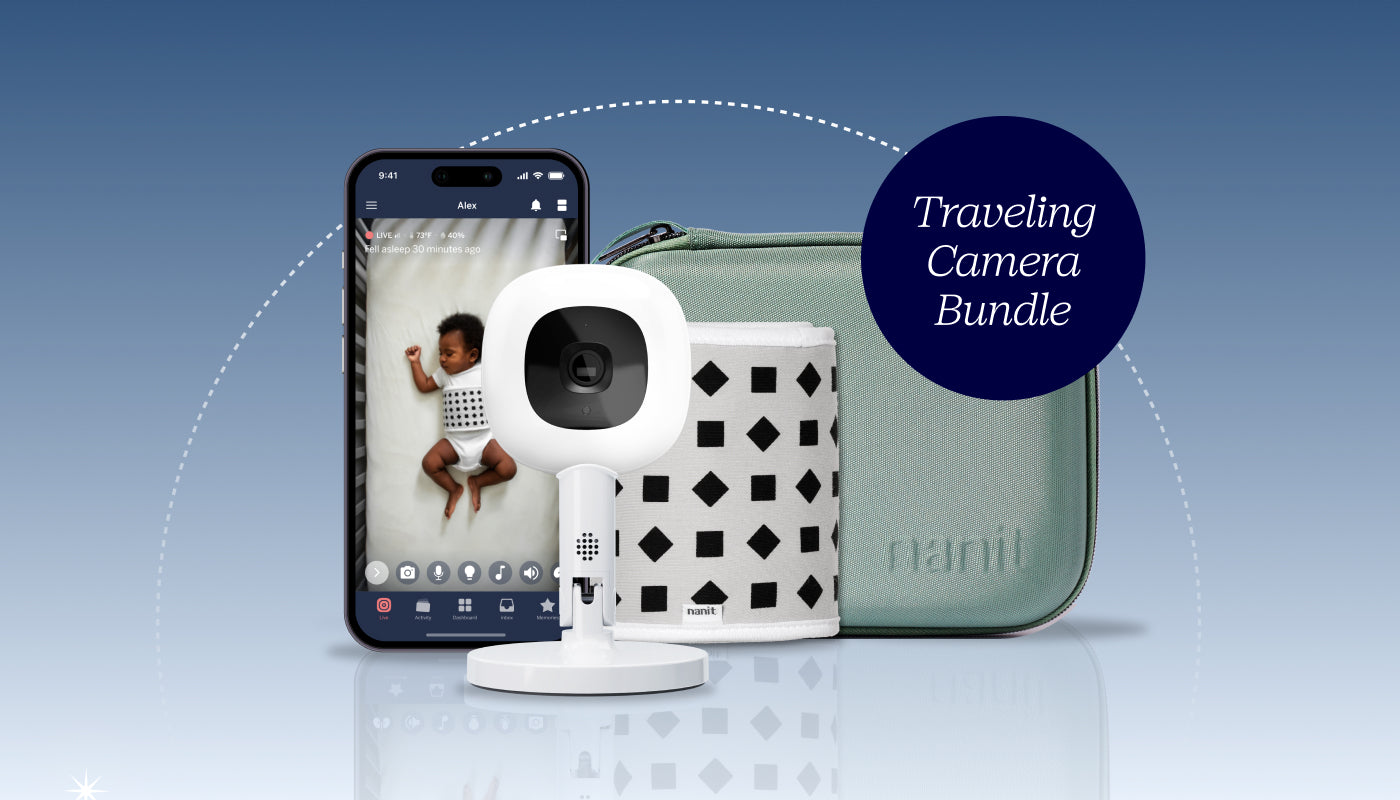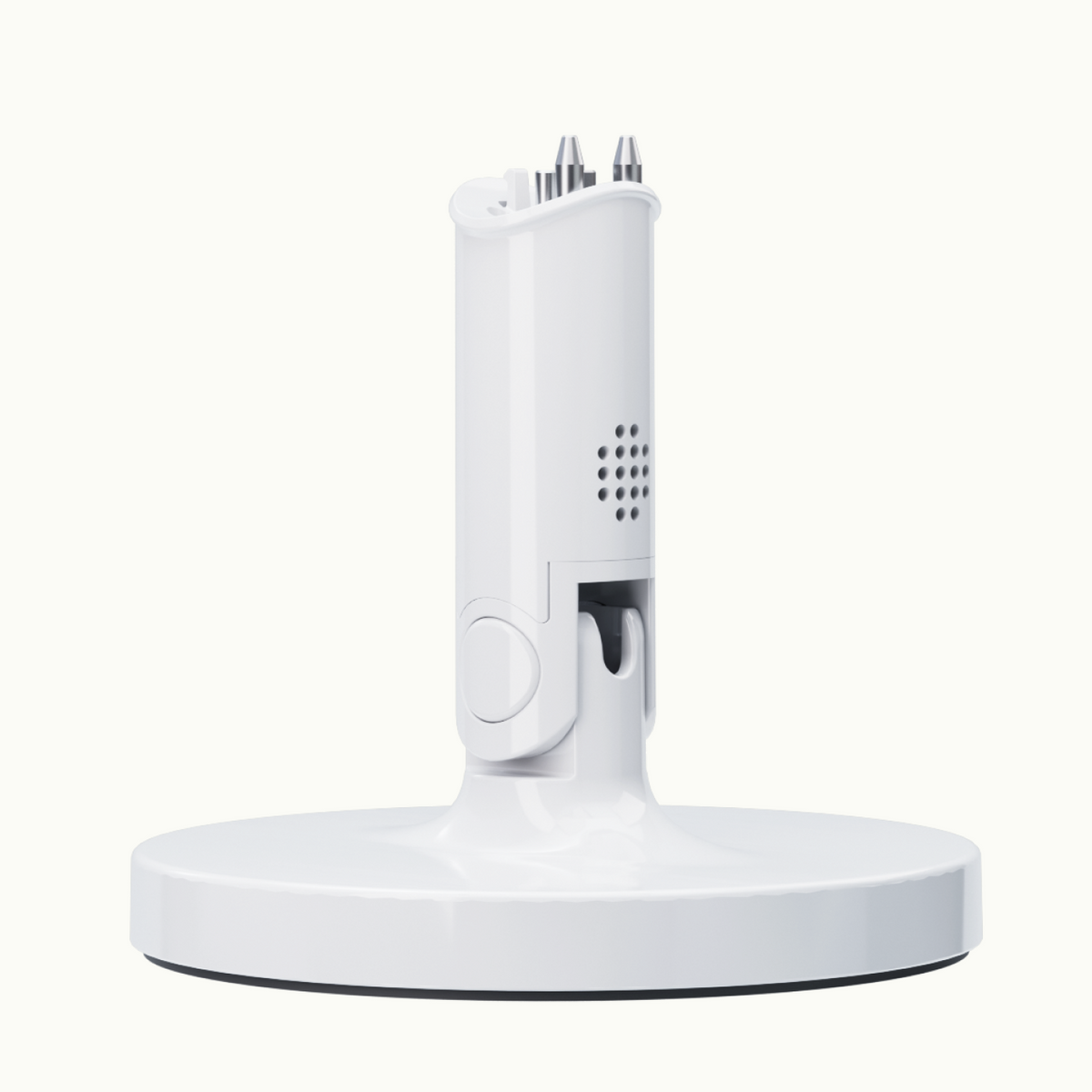Hey there, new dad (or dad-to-be). We see you…and your very understandable jitters. And while, yes, your life is about to change, we wsdant to underline that that means good things along with some hard.
Here to help you get the most out of every moment—the wonderful and the challenging—we’ve pulled together some suggestions, tips to see you through to your parenting best. Read on and, yes, dad jokes are welcome.
1. Remember that you and your partner are a team. As a new dad, it can be hard to feel like you’re playing second fiddle or waiting around for instructions. So before your baby arrives, talk with your partner about how the two of you envision dividing up responsibilities, things you feel are your areas of expertise, and where you feel less confident. Having a sense of your role before the baby arrives can help you feel like a more integral part of your growing family. After your little one is born, make time for regular check-ins so you can stay on top of how everyone is doing. And it’s never too late to connect in this way, so even if you already have a baby at home and never did the early prep work, it’s not too late! You can touch base now and set up a supportive foundation to build on going forward.
2. Participate in baby and nursery prep. Build that crib/glider/bookshelf if that’s your superpower. But also look for micro ways to connect to your baby’s room and necessities: Add your favorite kid’s books to the shelf. Help choose the paint color. Figure out how to fold up the new stroller and install the car seat. If you’re the tech savvy one in the family, research and pick out some parenting tech like Nanit’s Pro Camera and/or Sound + Light that’ll bring everyone peace of mind. Many of the Nanit features allow multiple caregivers to participate. You can note down important daily details, such as feedings and diaper changes, on the Care Logs, so everyone is on the same page. Track the temperature and humidity in your baby’s sleep space. And when you and your partner trade off getting your baby out of the crib in the morning, you’ll both be part of Nanit’s compilation videos. Overall, when your new little one arrives, you want to feel comfortable and at home with their room and gear.
3. Brush up on all your best necessary skills—and maybe learn a few new ones. You may have already practiced changing diapers and wrapping the perfect tight swaddle. But how about learning how to clear a baby’s stuffy nose, clip their nails, or burp them? If some of these are new terrain, talk to parent friends or watch how-to videos so you feel confident with ideas and strategies. Also, this is a wonderful time to lean into your skills: Use that beautiful voice to sing your fretting newborn to sleep. Love to cook? Prep meals in advance and freeze them for when you’re both bleary-eyed from midnight feedings, or whip up power smoothies for your postpartum partner.
4. Celebrate the big and little wins. Especially if you’re a brand new dad, the learning curve is huge and it can be easy to feel like you’re always making mistakes. Keep a sense of perspective by remembering what you’re good at and noticing what you did well. Successfully managed to install the car seat? Win. Brought diapers and wipes on the walk? Win. Kept the baby’s socks on for longer than 10 seconds? Super win.
Plus, mistakes are valuable, says Dr. Aliza Pressman, developmental psychologist and host of the podcast Raising Good Humans.
“It’s actually better for your children for you to be imperfect,”
she shared in Nanit’s Parent Like a Pro summit earlier this year. “In order for relationships to be strong and stable, you have to have moments of disconnection and coming back together to repair. When you lift weights, you’re tearing your muscles just a tiny bit, and then they repair and grow stronger, and relationships are exactly the same way. If you’re perfect, you won’t build those muscles. You can’t. It’s so intuitive to want to be perfect, but fight the urge and give yourself grace, because perfection doesn’t actually serve our kids or us.”
5. Seek out ways to bond with your baby. Dads may have to be a little more intentional about building the connection with your baby, but happily, there are plenty of sweet options to help: skin to skin cuddle time, take a bath with your baby, wear them in a carrier or a sling while you do activities around the house or go for a walk, sing, talk, or read to your baby, and take charge of some of the feedings.
6. Make room for big feelings. It’s hard to predict exactly how you and your partner are going to feel once your family expands. So make space for whatever comes up. There will be joy, certainly, but there may also be grief, jealousy, overwhelm, anxiety. And your partner may react differently or need support in different areas than you do. Honor and share what you’re both experiencing so you can find ways to help each other through this big transition. At the end of the day, remember that parenting is a team sport and you and your partner are on the same team.
7. Take care of your health. Postpartum depression and anxiety don’t only impact moms. In fact, Nanit research found that 21 percent of fathers reported experiencing symptoms of depression or anxiety after becoming a parent. Plus, 65 percent of dads aren’t aware that their symptoms are associated with PPD—so they don’t ask for help. A few important ways to keep yourself healthy: Trade night shifts so everyone gets solid blocks of sleep and utilize tools like Nanit’s Pro Camera and Sound + Light white noise to help that sleep be as restful as possible. Make time for exercise and other activities that restore you. Ask for help when you need it. (See #9 below.) And take advantage of any parental leave offered by your employer. It’s there for a reason.
8. Communication is key. A new baby in the house can mean an adjustment to the level of independence and autonomy you’re used to, which can be tricky for you both. Talking over plans/needs/wishes with your partner in advance can often head off stress and arguments. You may want to set up a regular time to go over the day or week ahead and/or create shared lists and calendars that both parents can access.
9. Establish routines you can look forward to. Routines can become places of peace for you and your child, easing your mental load and helping your child settle down, fall asleep faster, and allow others to share in caregiving duties. For moments like bedtime, you can start early on to build a routine of things you enjoy, such as a bath, singing or reading, and a snuggle before laying your child into bed. And include in the mix mini routines that support you too! Maybe a hot shower or 10 minutes of reading before your own bedtime. Making yourself coffee as you heat the baby’s first bottle of the day. You and your own well being are an important part of the big family picture.
10. Build your village. Remember that old saying, “No man is an island.” That means you. And having a baby is a wonderful time to rally your people around (including the Nanit Community!) to teach you what you don’t know (see #3), boost you up when you’re down (see #4 and #7), feed you, fold laundry for you, babysit for an hour so you and your partner can go for a walk (see #12). You’ll all feel better when you do.
11. Be patient with yourself. You may think your partner is a pro at all the things, but chances are, there are plenty of times they’re feeling lost, too. Remember, this whole being a parent thing is a learning process and even experienced parents have moments of winging it. Nobody knows how to install a car seat or nail that one-handed stroller fold on the first go. But every time you do it, you’ll get a little bit better and one day, you’ll be the one offering tips to your new dad neighbor. So when the doubt creeps in, especially in these newborn days, hold fast to the most basic perspectives: In parenting, everything is a phase. Mistakes can be good. (See #4.) And tomorrow you can try again.
12. Carve out moments for your relationship. No one’s expecting a grand Date Night Out when you’ve just been tossed into the deep end of life with a newborn. But staying connected with your partner is a big part of the raft that will keep you two afloat. So look for little ways to honor and appreciate each other. Bring your wife coffee in the morning, just the way she likes it. Hold your husband’s hand when you’re watching a show. Draw each other a hot bath. Say thank you. Show each other you’re seen and valued. And maybe even jot down ideas for the Date Night Out you will get again—just as soon as you’re rested enough to remember your last name.


